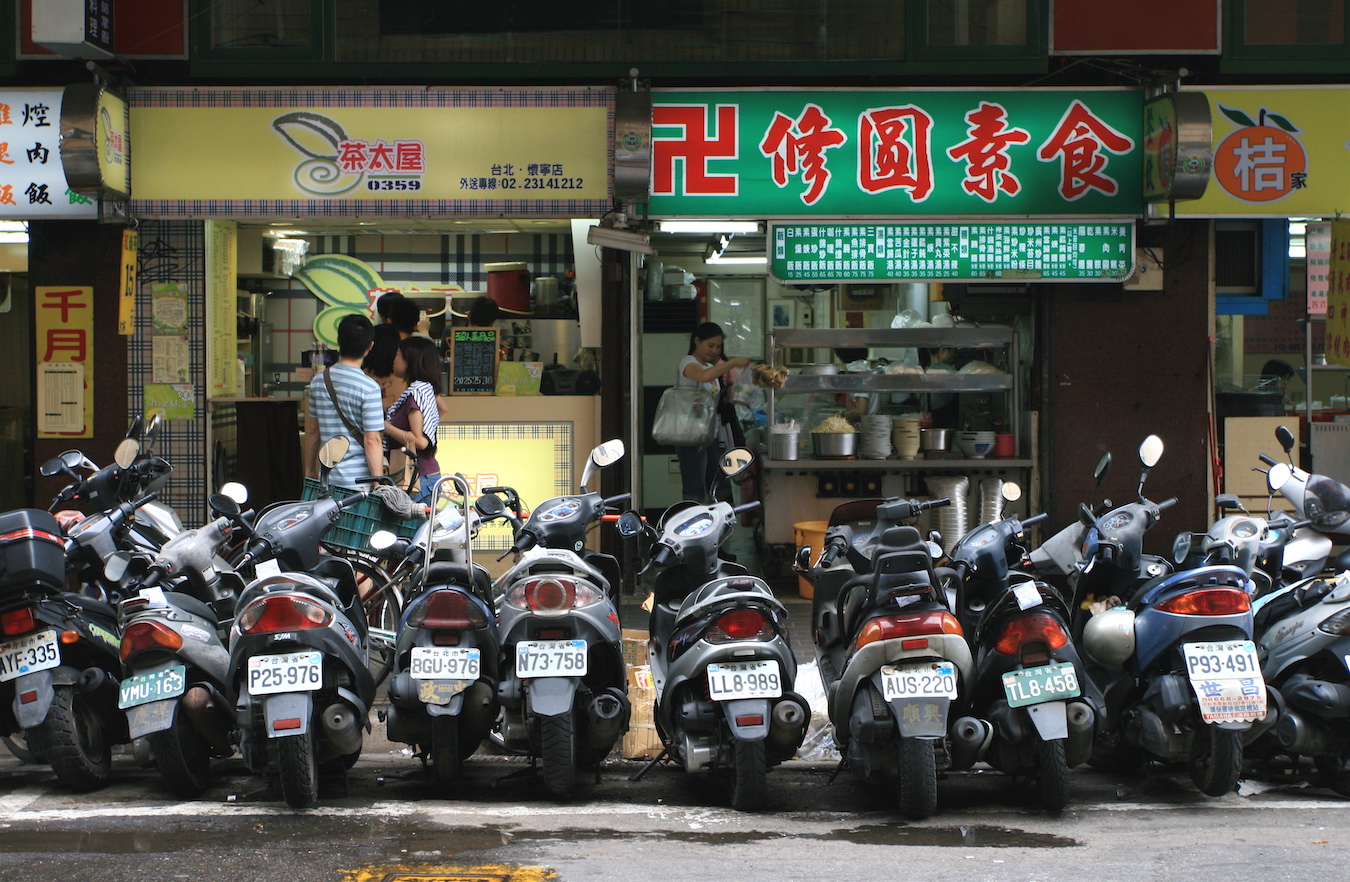by Brian Hioe
語言:
English
Photo Credit: Jim Epler/Flickr/CC BY 2.0 DEED
LAST WEEKEND, hundreds of motorcyclists demonstrated outside of the Ministry of Transportation and Communications (MOTC), calling for heavy motorcyclists be allowed to use highways, phase out the ban on motorcyclists using inner lanes, and the current two-step turn that motorcycle and scooter riders need to use.
Such demonstrations have taken place numerous times in past years. For example, in July 2022, 5,000 motorcycle and scooter riders demonstrated on Ketagalan Boulevard to call for being allowed to use provincial highways and against the two-stage turn.
Demonstrators have sought to call attention to that the legislature amended the Road Traffic Management and Penalty Act to allow heavy motorcycle riders to use provincial highways sixteen years ago. Nevertheless, the MOTC has not put the laws into effect, as a result of which something mandated by law has not still happened.
Motorcyclists have criticized the MOTC as continuing to have a stereotyped image of motorcycle riders as dangerous, hence its refusal to implement such laws for over ten years. To this extent, motorcyclists suggest that current laws increase the possibility of collisions between pedestrians and motorcycles, seeing as the two-stage turn requires more movement near pedestrian crossings, and the current restrictions that motorcyclists cannot use inner lanes may also increase the possibility of collusion with pedestrians.
There are eight million cars in Taiwan, but 14 million scooters and motorcycles. However, motorcycle advocates take the view that current laws favor cars over scooters and motorcycles in a way that is not only dangerous but also inconvenient, pointing to the 3,000 fatalities that take place yearly due to collisions.
Progressive youth-oriented politicians and parties, such as the New Power Party and Green Party, have been supportive of the issue in the past. That being said, such calls take place at a time of increasing calls for pedestrian safety in Taiwan, and it is unclear how the two issues will interact.
 Photo credit: Jim Epler/Flickr/CC BY 2.0
Photo credit: Jim Epler/Flickr/CC BY 2.0
A rally to call for pedestrian safety in August was likely the first major campaign event of the 2024 election season. The demonstration brought 50,000 to demonstrate on Ketagalan Boulevard, despite heavy rain.
In particular, Taiwan’s issues with traffic safety have increasingly been discussed in recent years. This is the case particularly after international media reporting on the subject, leading Taiwan to be referred to as “pedestrian hell”. The high number of scooters in Taiwan is often seen as contributing to this public image.
As such, there have increasingly been calls for Taiwan to take action in past years, to ensure the rights of pedestrians. This occurs even as Taiwan has otherwise been lauded for other aspects of its transportation infrastructure, such as public transport with metro systems or bike-sharing systems. Although penalties have been stiffened for drivers who fail to yield to pedestrians, it is to be seen how effective strengthening punitive measures against drivers will be in changing the fundamental culture around driving in Taiwan. Apart from that scooters, motorcycles, and cars can lead to pedestrian fatalities, this also occurs because of buses that fail to yield to pedestrians. The August demonstration, which was termed Vision Zero Taiwan, therefore called on the government to have a future vision for Taiwan in which there are no deaths that occur as a result of accidents between pedestrians and cars.
Still, with many years of consistent advocacy by motorcyclists, there has continued to be a reluctance from the government to take action on the issue–ironic, since this comes down to implementing laws that were already passed.
It is probable that stakeholders in the Ministry of Transportation and Communications do not wish to push on the issue, hence why there has been no implementation of legal changes from a decade ago. But, to this extent, in the absence of any larger public outcry, it is unlikely that elected politicians will be motivated to take action either. It proves unusual when a section of government drags its feet on implementing laws in such a manner, but such issues occur within Taiwanese bureaucracy due to conflicting stakeholders, or vested interests within departments and ministries.

